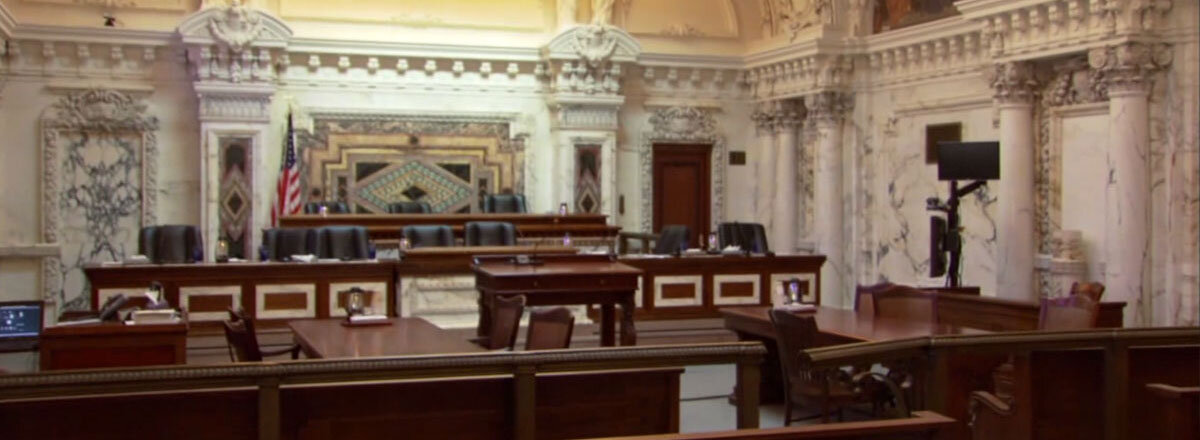
PRACTITIONER BLOG
Read our analyses of developments in Impact Litigation and stay current on class action law

Impact Fund and Amici: Ninth Circuit’s New “De Minimis” Standard for Predominance Is Wrong and Disadvantages Workers
Our brief argues that the panel’s decision is inconsistent with decades of Supreme Court and Ninth Circuit precedent regarding class certification and trials challenging employment discrimination and other workplace violations, such as wage theft. To require plaintiffs to demonstrate no more than a “de minimis” number of uninjured class members at the class certification stage forces district courts to engage in a full-blown inquiry into the merits of the case, an inquiry which the Supreme Court and the Ninth Circuit have repeatedly stated courts are expressly forbidden to undertake at that stage.

Impact Fund and NAACP Legal Defense Fund to SCOTUS: Don’t Rewrite Typicality
The Impact Fund and NAACP Legal Defense and Educational Fund, Inc. filed an amicus brief in the U.S. Supreme Court on behalf of ourselves and twenty-four civil rights organizations. We argue that Ramirez indisputably satisfied typicality, as every class member in the case presented the same claims, were subject to the same conduct, and sought the same relief as Ramirez did. “TransUnion seeks to turn Rule 23 typicality on its head, asking the high court to rewrite the rule to protect defendants rather than absent class members,” declared Impact Fund’s Executive Director Jocelyn Larkin. “Nothing in the language or purpose of the rule supports TransUnion’s approach.”

Epic Systems And The Erosion Of Federal Class Actions
Epic Systems expanded Concepcion, concluding that federal labor law does not block arbitration class waivers, rendering them permissible in the employment context, too. Justice Ruth Bader Ginsburg noted that this additional barrier will lead to the under-enforcement of employment law stemming from this restriction on collective power, as has already happened in the consumer context.

A question for Microsoft: How many #MeToo’s does it take?
Sworn statements explained how women at Microsoft are undervalued in comparison to men, are denied opportunities that men receive, are left out of important meetings, and work in a sexualized environment in which male employees stare at women’s breasts, grope them, and comment on their bodies and clothes. One woman explained the pressure that she and other women feel to “hit the sweet spot between being perceived as ‘too timid’ or ‘overly passionate’ and ‘too harsh’ in Microsoft’s male-dominated culture.” Her male manager lowered performance ratings for her and the team of women she supervised because he believed they did not “smile enough.”

SCOTUS Rules on Class Action Tolling in China Agritech, Inc. v. Resh
The Court’s decision, in our opinion, is a grave departure from the goals of efficiency and economy inherent to class actions. Requiring plaintiffs to preemptively file multiple actions unnecessarily burdens the judiciary and clogs the system with duplicative cases. The Court’s decision also is at odds with what we regard as the reality of modern class actions in that many do not have a final decision on class certification within two or four years, for reasons outside the named plaintiff’s control. Necessary discovery, taxed courts, appeals, and recalcitrant defendants all slow the process and often prevent the parties from obtaining a final ruling on class certification within the first few years. In addition, orders denying class certification may identify remediable issues that can be addressed only by filing a new action. This week’s ruling prohibits plaintiffs who initially timely filed their case from filing those new actions if the court’s class certification order arrives outside the original statute of limitations.

Distinguishing Dukes: Another Victory For Employment Discrimination Class Actions
Employers have consistently taken the position that challenges to employment processes that involve some element of subjectivity – and most do – cannot be brought on a class basis after Dukes. According to the logic of this argument, only non-discretionary evaluation measures, such as standardized tests or physical fitness tests, will satisfy commonality under Rule 23(a). Fortunately, a recent opinion from the Southern District of New York joins the growing list of decisions rejecting this extreme position.
9th Circuit: "evidentiary proof" in support of class action certification need not be "admissible evidence."
The Ninth Circuit recently ruled that evidence offered in support of class certification need not meet standards for admissibility at trial. In a published opinion, Sali v. Corona Regional Medical Center, No 15-56460 (9th Cir. May 3, 2018), the panel reversed and remanded the district court’s determination that plaintiffs failed to satisfy typicality, adequacy, and predominance.
A Big Year for Class Actions in SCOTUS (2016 Term Review)
The Supreme Court docket this past term had class action practitioners holding their breath. Over the last five years, the Court has limited access to class actions in cases including Wal-Mart Stores, Inc. v. Dukes, AT&T Mobility LLC v. Concepcion, and American Express Co. v. Italian Colors Restaurant. This term, the Court took on an unprecedented four class action cases. The outcome is fascinating and has many ramifications for the ability of class actions to serve as a vehicle for groups of people—including workers, minorities, and consumers—to hold corporations and the government accountable.
